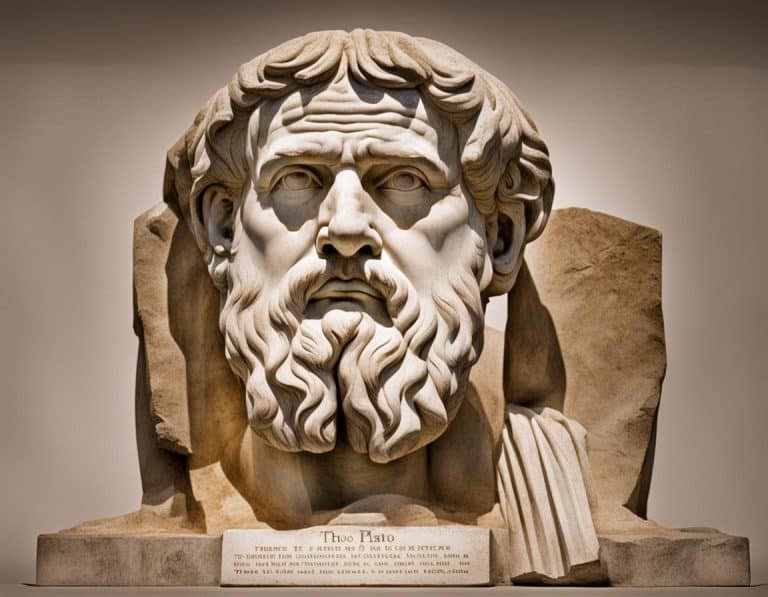Socrates’ Influence on Plato’s Ethical Framework
Socrates’ profound influence on Plato’s ethical framework is undeniable, shaping the very core of Plato’s philosophical ideas on virtue, justice, and morality. The examination of ethical concepts, such as the Good and the Just, became a central theme in Plato’s dialogues due to Socrates’ emphasis on questioning and seeking truth through rational inquiry. This influence is evident in Plato’s dialogues, where Socrates’ method of dialectics is utilized to explore ethical dilemmas and define the essence of goodness and justice.
Moreover, Socrates’ emphasis on self-examination and the pursuit of knowledge as the key to living a virtuous life deeply impacted Plato’s ethical theories. Plato integrated Socratic teachings into his own philosophical works, emphasizing the importance of introspection and intellectual inquiry in cultivating moral virtues. By adopting Socrates’ belief in the intrinsic connection between knowledge and virtue, Plato developed a robust ethical framework that continues to influence Western philosophy to this day.
Delving into the Notion of the Good and the Just
Exploring the core concepts of the good and the just in Plato’s philosophy unveils the profound influence of Socrates on his ethical framework. Socrates’ firm belief in the pursuit of moral excellence and the importance of virtue laid the foundation for Plato’s overarching ideas concerning the nature of ethics and justice. In Plato’s dialogue “The Republic,” Socrates engages in a thought-provoking discussion with his interlocutors, delving into the complexities of defining what constitutes the ultimate good and how justice can be achieved in society.
Central to Plato’s exploration of the good and the just is the concept of the Form of the Good, a transcendent and immutable ideal representing the highest truth and ultimate reality. Building on Socrates’ emphasis on the importance of knowledge and wisdom as the key to moral enlightenment, Plato argues that genuine justice can only be attained by aligning individual actions and societal structures with the Form of the Good. This philosophical framework not only reflects Socrates’ ethical teachings but also underscores the profound impact of his intellectual legacy on shaping Plato’s ethical theories.
Role of Socrates in Plato’s Theory of the Soul
Socrates played a pivotal role in shaping Plato’s theory of the soul, which forms a fundamental aspect of Platonic philosophy. One of the central themes that Socrates introduced is the concept of the immortality of the soul. This idea proposes that the soul is eternal and transcends the physical realm, surviving beyond the death of the body. Moreover, Socrates influenced Plato’s development of the tripartite model of the soul, dividing it into three distinct components: reason, spirit, and desire. This model serves as a foundation for understanding human behavior and moral decision-making within the context of the soul’s intricate composition.
Investigating the Immortality of the Soul and the Tripartite Model
Plato’s exploration of the immortality of the soul and development of the tripartite model was deeply influenced by the teachings of his mentor, Socrates. Socrates’ emphasis on the importance of the soul as the essence of one’s being laid the foundation for Plato’s philosophical inquiries into the nature of existence. Drawing from Socrates’ discussions on the soul’s eternal nature, Plato delved into the idea that the soul is immortal and transcends the physical realm.
In Plato’s tripartite model of the soul, he divided the soul into three parts: reason, spirit, and appetite. This division was a reflection of Socrates’ belief in the importance of self-awareness and self-control. The rational part of the soul, guided by reason, aimed to seek truth and wisdom, aligning with Socrates’ teachings on the pursuit of knowledge. The spirited part of the soul represented courage and determination, qualities that Socrates admired in individuals striving for moral excellence. Lastly, the appetitive part of the soul symbolized desires and emotions, echoing Socrates’ discussions on the importance of temperance and moderation.
Socrates’ Contribution to Plato’s Political Thought
Socrates’ influence on Plato extended beyond ethical and metaphysical realms to profoundly shape his political philosophy. Plato’s political thought was heavily influenced by the teachings and ideologies of his mentor, Socrates. One key aspect of Socrates’ contribution was his emphasis on the importance of justice and the quest for the ideal state. Through Socrates’ dialogues and discussions on justice, Plato developed his own theories on the concept of the ideal state, governance, and the role of the philosopher-king.
In Plato’s Republic, inspired by Socratic dialogues, he presents a detailed description of an ideal state led by philosopher-kings. These rulers were envisioned as individuals who possessed philosophical wisdom and a deep understanding of justice, thus making them the most suitable leaders. This concept of the philosopher-king was a direct reflection of Socrates’ belief in the importance of knowledge and ethics in governance. Plato’s political thought was intricately intertwined with Socrates’ teachings, creating a lasting legacy in the realm of philosophy and political theory.
Evaluating the Ideal State and PhilosopherKing Concept
In Plato’s philosophical treatises, one of the central themes revolves around the notion of an ideal state governed by philosopher-kings. Socrates’ influence on Plato’s political thought is notably evident in the dialogues where the concept of a utopian society is discussed. The idea of philosopher-kings ruling the state stems from Socrates’ belief that those with wisdom and a deep understanding of justice are the most suitable individuals to govern.
Furthermore, the philosopher-king concept in Plato’s work is a reflection of Socrates’ emphasis on virtue and knowledge as essential qualities for a ruler. Plato extends this notion by suggesting that only those who have undergone rigorous philosophical training and possess a profound understanding of the forms can lead a society justly and harmoniously. The model of the philosopher-king represents an aspiration for a government system free from corruption and guided by wisdom, values Socrates deeply believed in and imparted to his disciple Plato.
Related Links
What were the influences on Plato’s philosophy from travel and exposure to different philosophies?
How to understand Plato’s education and mentorship?

